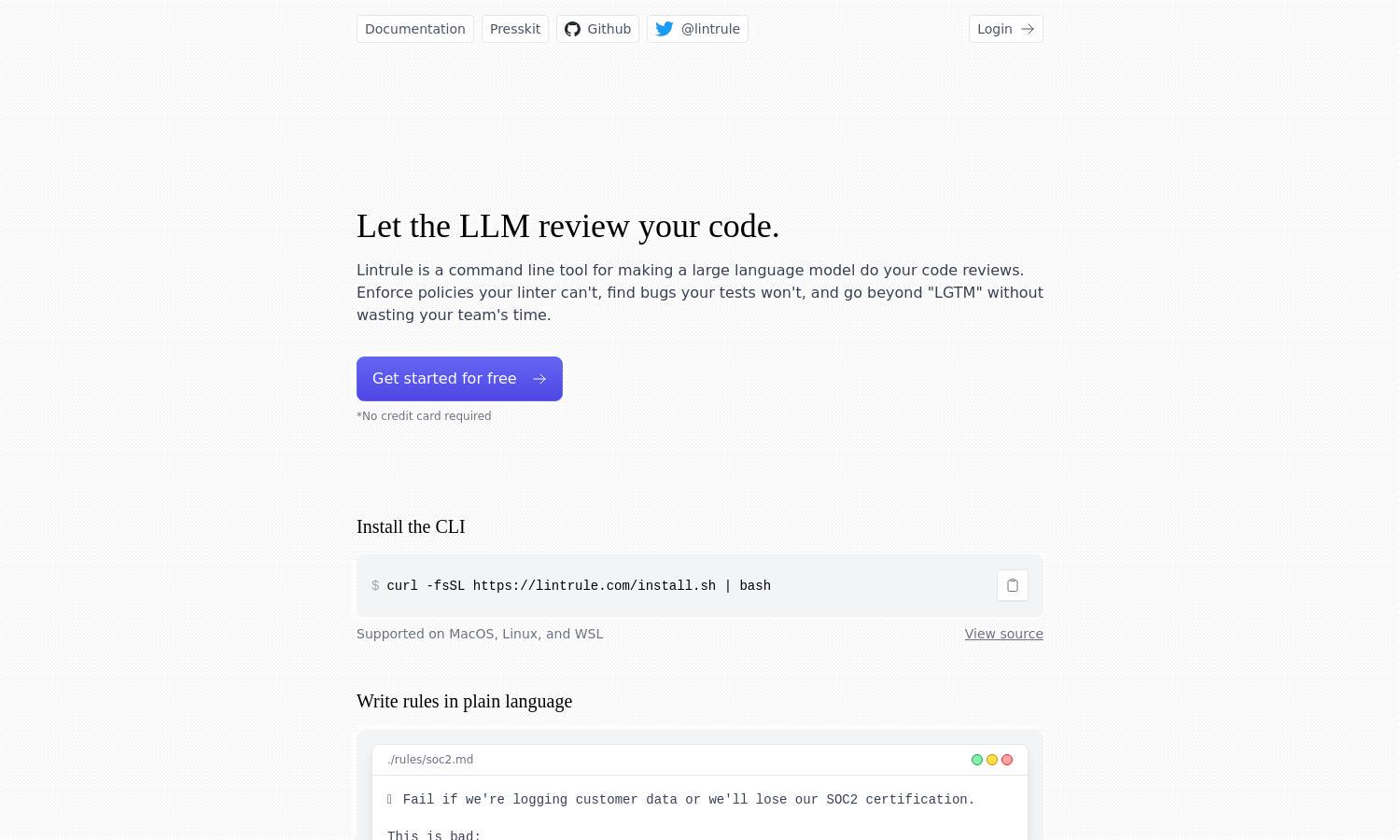Lintrule

About Lintrule
Lintrule is an innovative platform designed to streamline code review processes using large language models. Targeting developers and teams, it automates the detection of coding issues beyond traditional linters. With its user-friendly command line interface, Lintrule enhances code quality and saves valuable time for software engineers.
Lintrule offers flexible pricing, charging $1.00 per 1,000 lines of code changed. Small projects can cost around $20 monthly per ruleset, while larger projects range from $150 to $250. Upgrading to higher plans provides comprehensive code review capabilities, ensuring better software quality without breaking the bank.
Lintrule's interface is designed for seamless usability, featuring a clean layout that enhances user experience. Its intuitive command line structure allows users to easily navigate through features, making it accessible for both novice and experienced developers. Enjoy a quick and effective way to ensure code integrity with Lintrule.
How Lintrule works
Users begin by installing Lintrule via a simple command and setting up a rules folder. After logging in, they can customize rules with markdown files and run checks on their code. Lintrule intelligently processes changes since the last commit, delivering fast feedback and integrating naturally into the development workflow.
Key Features for Lintrule
Automated Code Review
Lintrule's automated code review feature leverages the capabilities of large language models to identify potential issues in code. This not only saves developers' time but also ensures compliance with best practices, enhancing software quality and reliability.
Customizable Rulesets
The customizable rulesets in Lintrule allow users to define specific coding guidelines tailored to their projects. This enables teams to enforce coding standards effectively, enhancing collaboration and reducing errors while maintaining high-quality software development practices.
Parallel Processing for Speed
Lintrule utilizes parallel processing to run checks simultaneously on multiple files and rules, significantly improving the speed of code reviews. This efficiency enables developers to receive immediate feedback and address issues swiftly, ensuring a streamlined development process.








